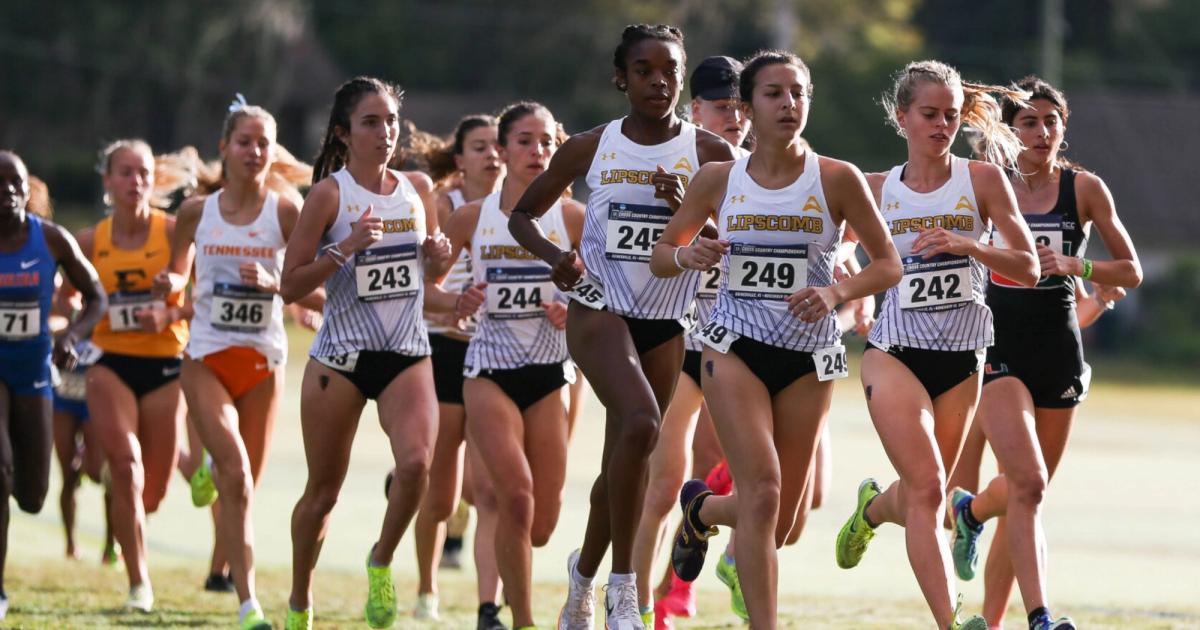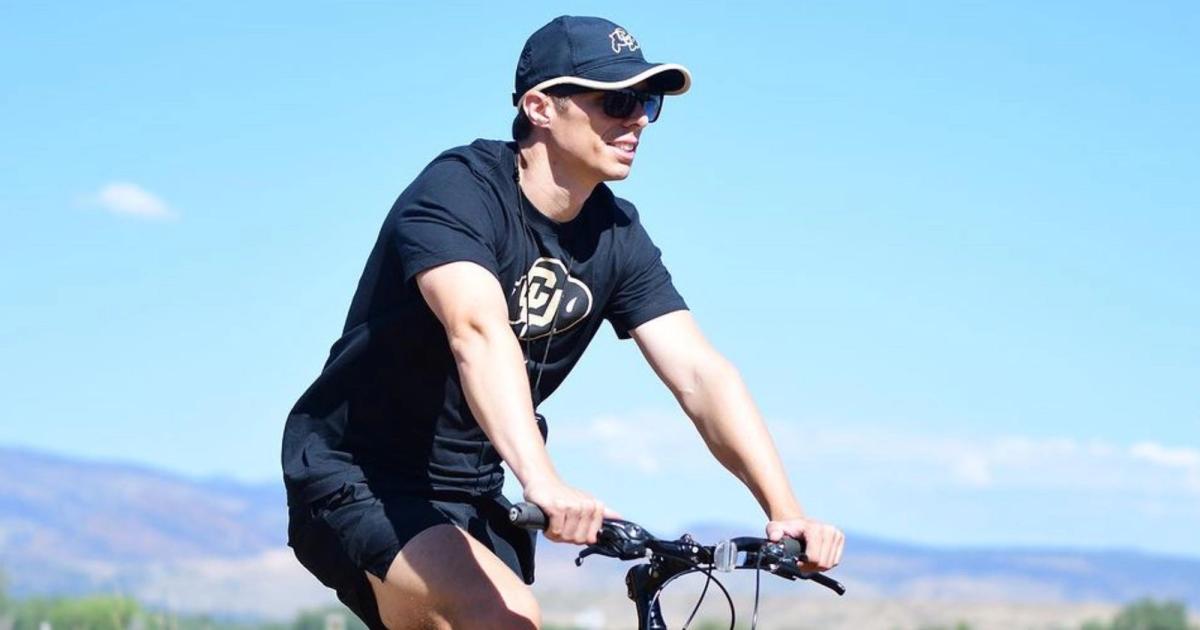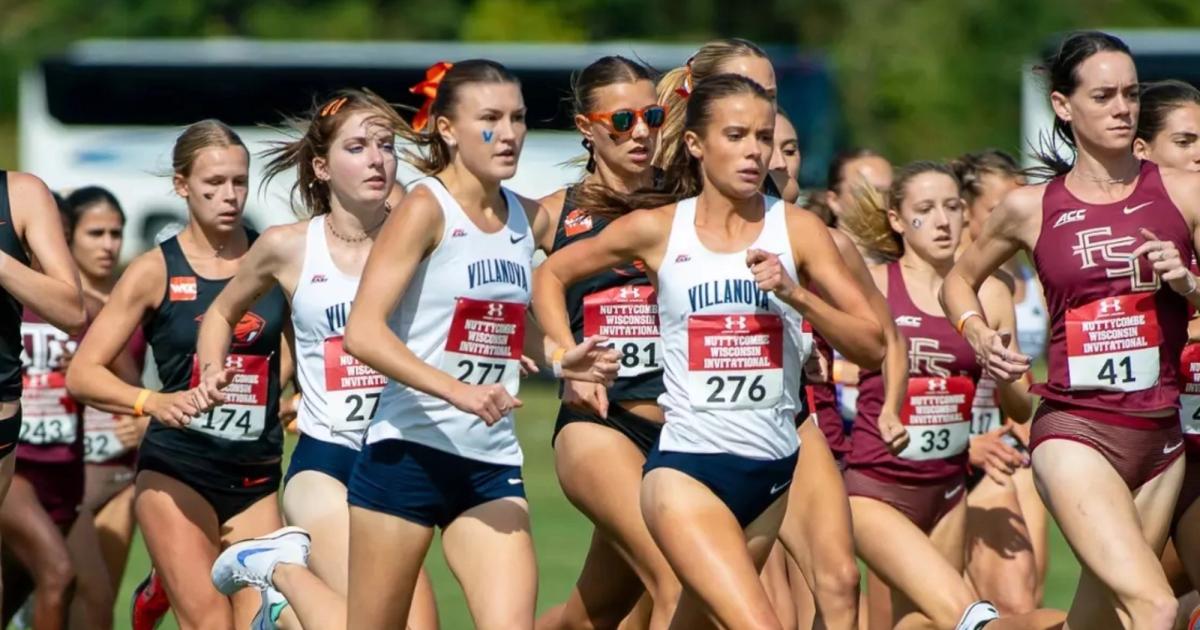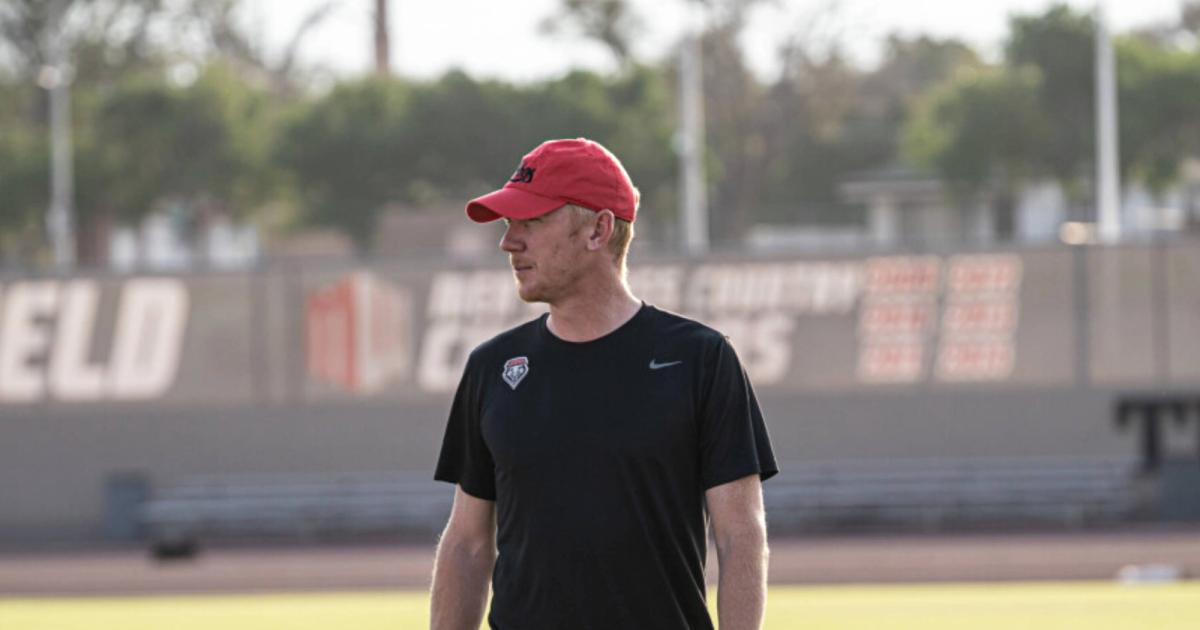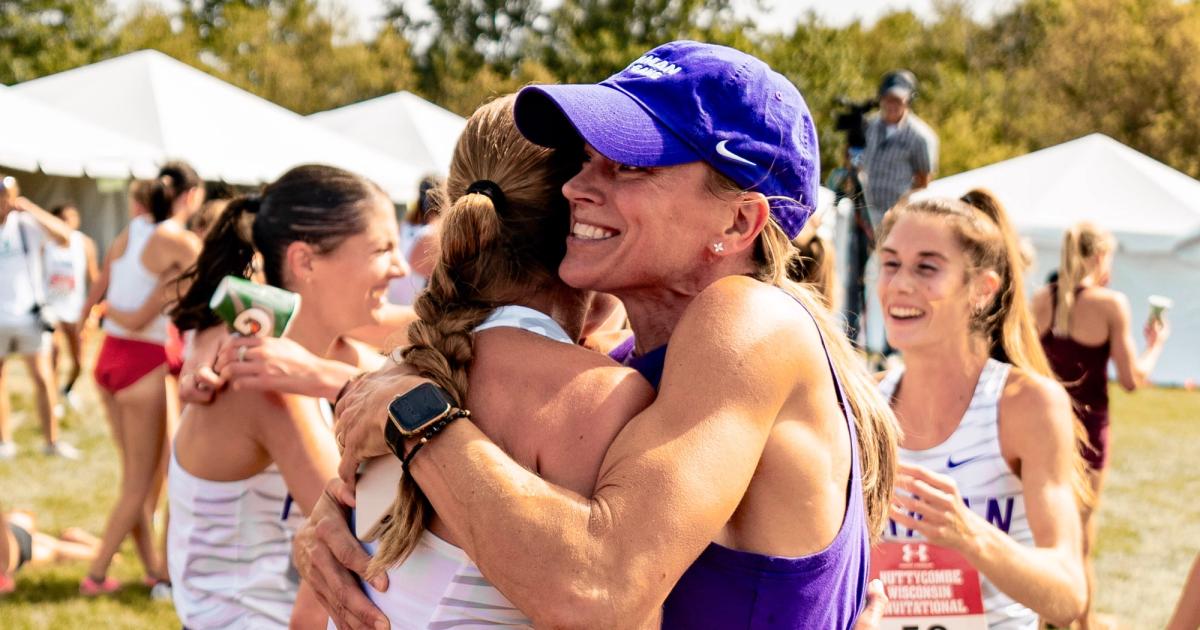By Jasmine Fehr
October 15, 2024
Nick Polk, Lipscomb’s Director of Cross Country and Track, joined us for this week’s NCAA coach spotlight. Polk has been at the helm of Lipscomb’s program since 2019 and has steadily transformed the women’s team into one of the best in the NCAA. Last fall, the women qualified for nationals for the first time in program history and placed 11th. This season, Lipscomb returns almost all of the women from last year's standout squad.
Polk has experience coaching at the Division I, II, and III levels and has served as USATF’s Sports Science and Medicine Manager. Prior to Lipscomb, he coached at Elon University, Grand Valley State University, and John Carroll University.
In our conversation, Polk shares insights on what led to last fall’s unprecedented national finish, his approach to building team culture and trust, the importance of team depth, and what he’s most excited about heading into championship season.
The following interview with Nick Polk has been edited lightly for length and clarity.
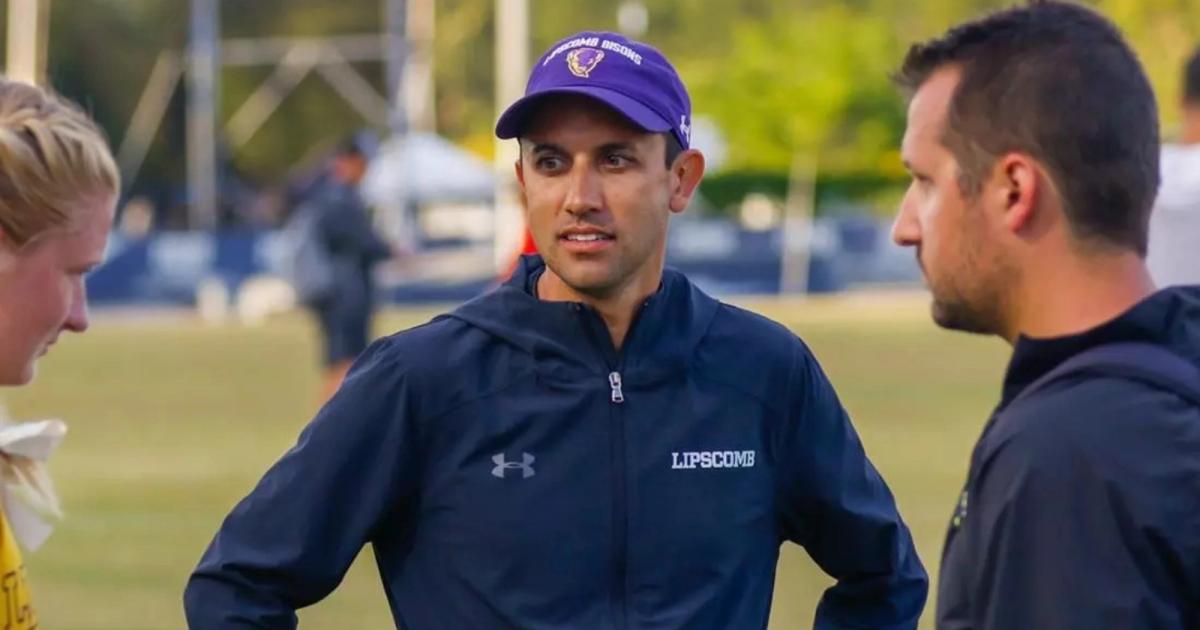
Courtesy of Lipscomb Athletics
Jasmine Fehr: Welcome to CITIUS MAG! To start us off, can you share a bit about your excitement for this season?
Nick Polk: We're excited to get things rolling. We had so much positive momentum at the end of last year and we’re hoping to be able to continue that.
What set the team apart last year that led to the women placing 11th at NCAAs? Moving into this year, are you seeing some of those same pieces?
At one point, our goal was: ‘Hey, let's get there and let's get last. Doesn't matter what place it is, but let's just get there.’ Then it started to slowly evolve into something more.
It was at Nuttycombe last year where we ended up 10th and were like, ‘Okay, we actually are pretty good. We can do this and we have the depth to get it done.’ It was an exciting year to get to NCAAs. At the meet, we were 28th through the first kilometer, then it was 22nd at the next kilometer, then 18th, then 16th… They never failed and just kept getting better.
I think they're way better now than they were last year, so it will be fun to see what that end result is.
"We were 28th through the first kilometer, then it was 22nd at the next kilometer, then 18th, then 16th… They never failed and just kept getting better."
In building team culture and cohesion among the women, what factors do you prioritize most?
Depth is really important to us. If you look back at last year, there were five schools with a better number five and four schools with a better number six at NCAAs.
Realistically, how many people are we going to have fighting for an individual national title? Probably not many — but we can out-culture and out-depth a lot of people by having such a good one-to-five or one-to-seven.
That’s something we're excited to see: what do five, six, and seven look like and can we truly have one of the best five, six, and seven in the country?
That’s where our team is. Our ladies are super close: they train together, live together, and eat together. They understand the culture and pack running. That's been our superpower over the last few years.
"They understand the culture and pack running. That's been our superpower over the last few years."
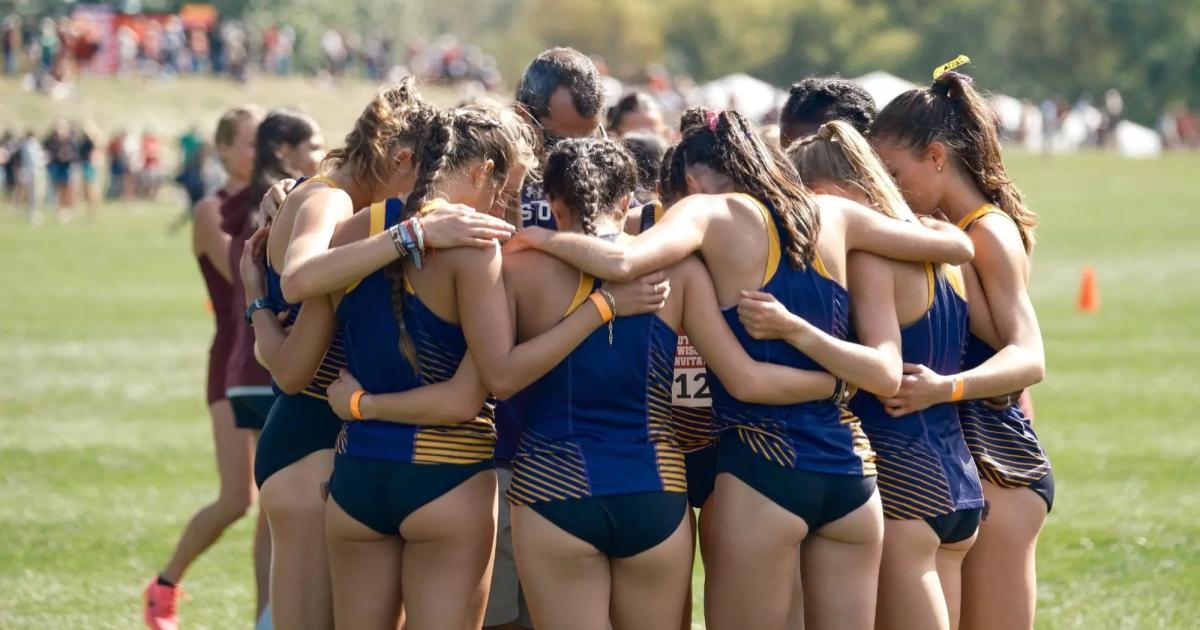
Courtesy of Lipscomb Athletics
So when you're recruiting, do you focus more on creating team depth rather than finding low sticks?
A little bit of both. As we've gotten better, we've had to discover and try to find low sticks… But we've done a really good job of developing people over time. One of the other cool statistics about us last year – and not that we're against this, because we have both of these things now – but we had no international students or transfers on the team. It was all undergraduate students who came to us as seniors out of high school.
There could not have been a very big group of people like that. We were able to develop them over time. I think only two of them broke five in high school. No one was a state champ, no one was winning everything, but they developed over time. I always want to make sure we keep that as the main thing.
Then we've been able to add strategic transfers. I think it’s about having your team be really good culture fits that you develop and then sprinkling in really good people.
"No one was a state champ, no one was winning everything, but they developed over time. I always want to make sure we keep that as the main thing."
Speaking of adding in transfers and international athletes, how have you navigated the changing landscape of the NCAA? Has your coaching or recruiting style changed?
Thankfully, we've never had anyone that outgrew us since we've done a good job of cultivating them and giving them opportunities. We’ve been the beneficiary of getting a few good transfers. Sometimes they helped create a spark – and even if they didn't run in our top seven, they were just really good fits. Now we've gotten some transfers that I think will be in our top five or seven.
It's a tricky balance… We don't want to be only transfers or only international students. Our primary source of success still has to come from really good fits for the university – Lipscomb is a Christian school.
Finding kids that fit the culture super well is always going to be where we start and build from. We navigate it pretty well by just adding on pieces. As long as they fit and it works well, that's awesome. The changes have been good for us in that way.
"Finding kids that fit the culture super well is always going to be where we start and build from. We navigate it pretty well by just adding on pieces. As long as they fit and it works well, that's awesome."
Can you share a little bit about your coaching philosophy and how it's evolved throughout your career?
I’ve been coaching for 15 years or so. I've had a pretty unique experience in that I've coached at Division III, Division II, and Division I and I've worked in the national office at USATF. I think I bring a pretty good perspective. I’ve worked all the way from, “Kids are just having fun,” to “I want to be an Olympian and run for my country.” As far as a kid wants to take this, I'll cater to them.
I've always been between the two worlds of blue-collar hard work to testing lactate and being really sport-sciency. I've gone over the edge on both sides before. I've come to the middle ground somewhere over time.
Over the last few years, our program has had a really good balance of understanding why we do things but not necessarily stressing about testing everything and perfectly hitting 70 miles a week. I think our team has done a really good job of knowing what we need to do but not stressing over the minor details.
Most of the time, the girls don't care. They're just like, ‘Tell me what to do.’ We have the most low-maintenance, high-achieving girls that just trust. I have to understand that's a big privilege. I don't give them more than they can take, either. So it's a really good trust balance for us.
Building trust between a coach and athlete doesn’t happen overnight. How have you created that trust with the team?
It happens in the recruiting process. I don't think they would have come here if they didn't trust us. It’s not like Lipscomb has this big-brand national name. We have to build really specific, intentional relationships and then they have to believe we can help take them where they want to be in life and in running. It takes time.
We also have really good staff. I've been here six years and our assistants, Coach Franz and Coach Grace, have been here seven and ten years – so they both preceded me and we've got really good continuity with our staff.
Some of the kids prefer to go to me, some prefer to go to Grace, and some prefer to go to Franz with problems or whatever it might be. I think we've created a really good circle of trust that can help fulfill the needs of the people around us.
Starting with the staff, we trust each other, enjoy being together, and that bleeds into the team. If the kids and the staff know that you mean well and you're there for their best interests, people will work really hard for each other in that scenario.
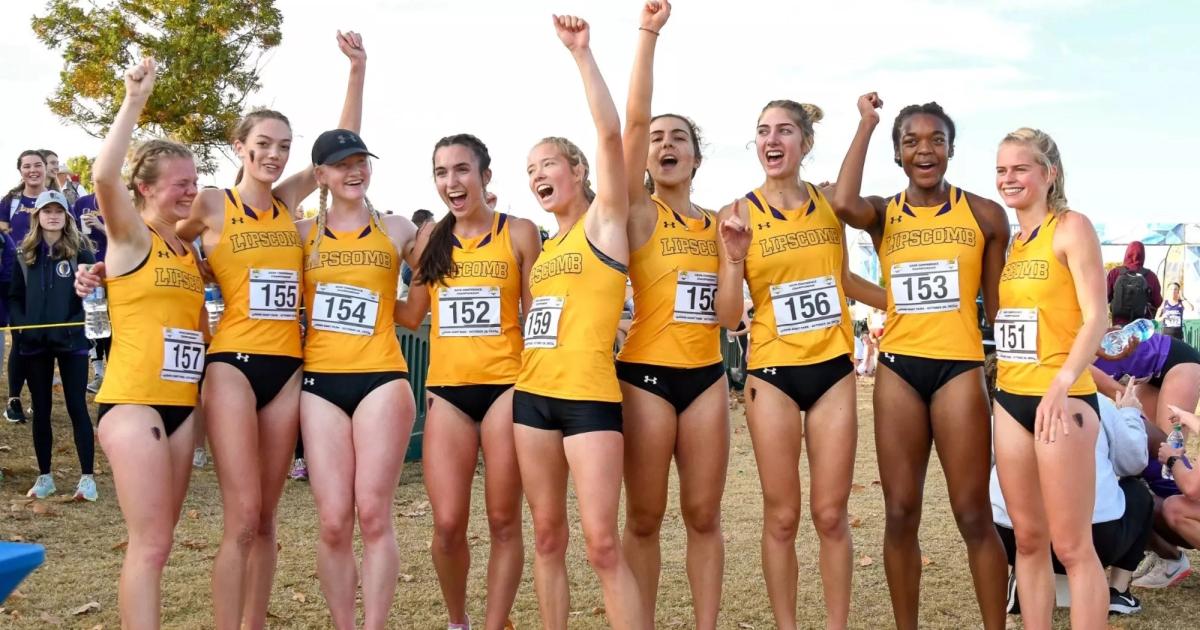
Courtesy of Lipscomb Athletics
Looking back on the past few years, can you share about a memorable meet, workout, or moment that you've had with the team?
One that comes to mind is when we could feel the momentum building on the women’s side. It was one of those times when you could feel that something special was coming.
At the Bryan Clay Invite two track seasons ago, we had four or five ladies in the 5000m and all of them were in different heats. Each one was warming up and then the next one was racing. I remember being out there and one would come back and be like, ‘How did she do?’ And I would tell her, ‘She broke 16:00 for the first time.’ And they would be like, ‘What?’ – I'm just blowing their minds. And then another would come back. I think we had five ladies run a huge PR that night and quite a few under 16:00. I remember that day being the precursor for what was going to happen to us at NCAAs for cross country the next year.
People were doing things they never thought they would be able to do: achieving lifetime ambitions and goals with two years left of running still. We've had a lot of moments of being on the rise, a lot of moments that were building this positive momentum.
I don't know what the future will hold. It's a little harder to sustain that. But for now, it was the first time we made it to nationals, the first time someone broke 16:00, and the first preseason ranking we've ever had. There's been a lot of fun and exciting moments.
"People were doing things they never thought they would be able to do: achieving lifetime ambitions and goals with two years left of running still."
The fact that the women cared just as much about their teammates’ races as their own is the mark of a really strong team.
We had three meets last year with three different number one runners. That’s hard to do. There's no pecking order; it changes significantly every meet. These women know and understand it's all for the greater good.
The nice part for us is that in track, one's really good at middle distance, one’s a 5K/10K runner, and one’s a steepler. They all come together for cross country and then all have their unique place to help the team for the other half of the year.
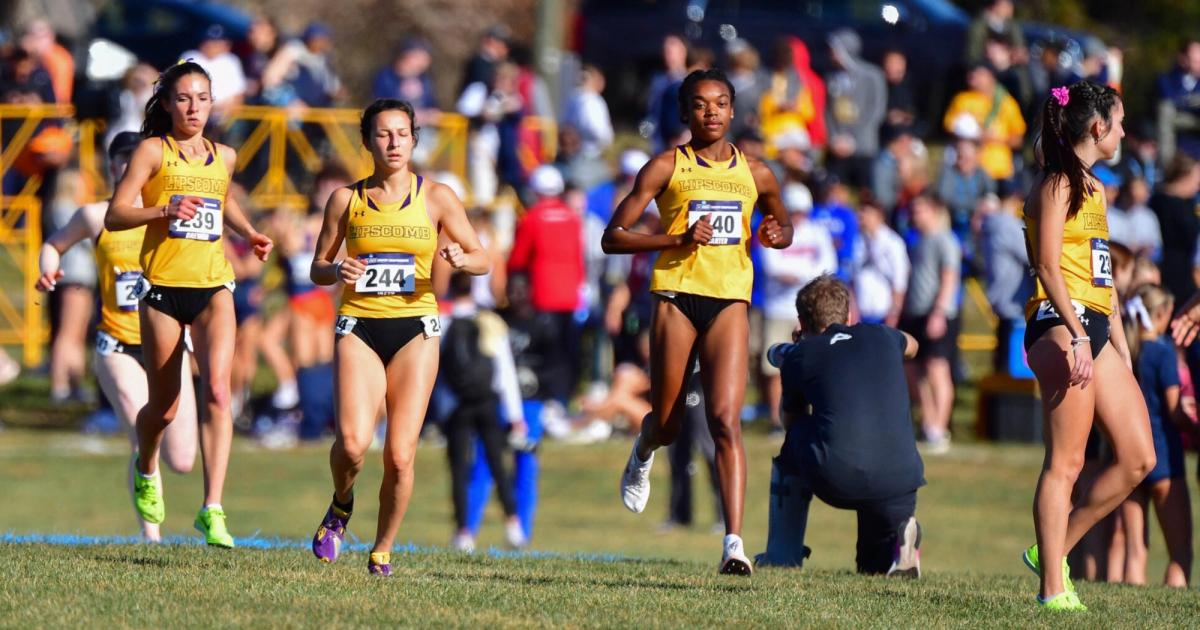
Courtesy of Lipscomb Athletics
To wrap things up, what do you enjoy most about coaching at Lipscomb and what are your hopes for growing the program?
We have a really good staff and we work hard together. I think we've been in seven days a week for six weeks. When you put in that amount of time, you really have to enjoy the people you're around.
Our staff is super close and then our athletes are really close. We genuinely enjoy being around each other. A big thing is continuing to enjoy this and allowing the students a space to enjoy what they're doing and not put too much pressure on them.
And to keep it going, we have to recruit people that fit really well. The goal is to continue to bring the program up to an even higher level and to make sure we remember that this is a fun, super unique job that we get to do. Just making sure we realize every day that it's a blessing and not something that we have to do or that we should be nervous about.
That’s awesome. Thank you so much for joining us and good luck to the team this fall!
___________________
Keep up with all things track and field by following us across Instagram, X, and YouTube. Catch the latest episodes of the CITIUS MAG Podcast on Spotify and Apple Podcasts. For more, subscribe to The Lap Count and CITIUS MAG Newsletter for the top running news delivered straight to your inbox.
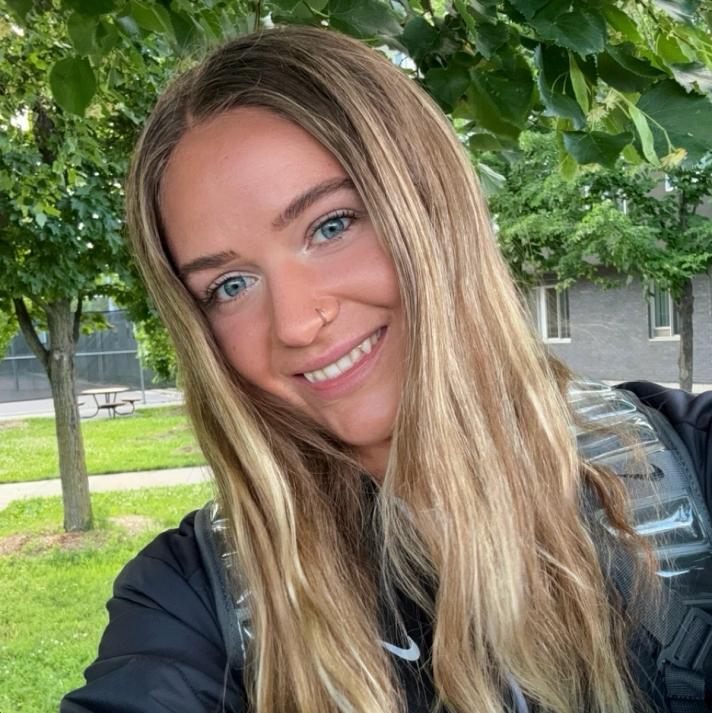
Jasmine Fehr
Jasmine Fehr produces the CITIUS MAG Podcast, manages our website, and shares content across our socials. She’s a marathon runner training in Flagstaff, Arizona. Her collegiate running career spanned the University of Portland and the University of Tennessee, where she earned a Bachelor’s degree in Psychology and Master’s degree in Communications.
